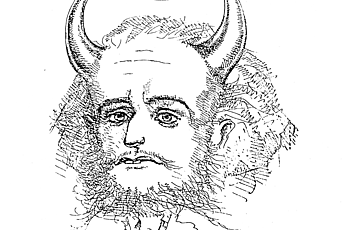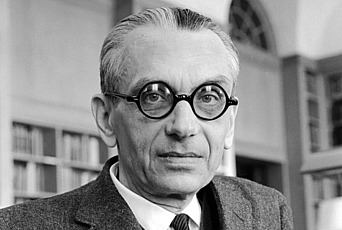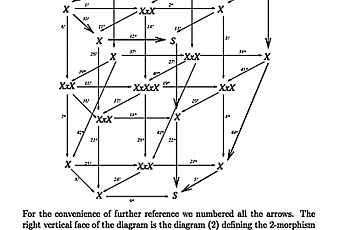Kurt Gödel’s achievement in modern logic is singular and monumental—indeed it is more than a monument, it is a landmark which will remain visible far in space and time.
—John von Neumann
Upon presenting Kurt Gödel (1906-1978) with the Albert Einstein Award in 1951, John von Neumann remarked, “Gödel was the first man to demonstrate that certain mathematical theorems can neither be proved nor disproved with the accepted, rigorous method of mathematics ... Gödel actually proved this theorem, not with respect to mathematics only, but for all systems which permit a formalization, that is a rigorous and exhaustive description, in terms of modern logic: For no such system can its freedom from inner contradictions be demonstrated with the means of the system itself.”
Kurt Gödel was among the Institute’s first Members in 1933-34, returning for further periods in the 1930s and 1940s before joining the Faculty in 1953. He remained at the Institute until his death in 1978.
On November 17, the Institute for Advanced Study hosted “A Program to Mark the Centenary Year of the Birth of Kurt Gödel.” The program, which drew some three hundred people to Wolfensohn Hall, consisted of talks by Karl Sigmund, Professor of Mathematics at the University of Vienna; Solomon Feferman, Professor of Mathematics and Philosophy, Emeritus, and the Suppes Professor of Humanities and Sciences, Emeritus, at Stanford University; John Burgess, Professor of Philosophy at Princeton University; Avi Wigderson, Herbert H. Maass Professor in the School of Mathematics at the Institute; and John W. Dawson, Jr., Professor of Mathematics, Emeritus, at The Pennsylvania State University. Excerpts follow:
“When the war broke out, the situation seemed in fact completely hopeless for the couple. But the Institute for Advanced Study proved up to the task. John von Neumann stepped in and briefed the Director [Frank Aydelotte] where to intervene. Almost miraculously the Gödels got permission to leave the Third Reich in January of 1940.” —Karl Sigmund
“The Gödelian challenge is that our best concepts, like that of set, seem to have a content perhaps not exhaustible in formal conventions, and certainly not exhausted by the formal conventions recognized so far, and we must strive both to work out more of what that content is, a project on which Gödel led the way, and to try to understand what it is that we are doing when we do so.” —John Burgess
“Gödel’s office was directly above the one that I shared with another visitor, the Japanese logician Gaisi Takeuti. We used to think we heard him pacing the floor above us. When I wanted to meet Gödel and figured he was in his office, I’d phone him for an appointment and would hear the phone ring and hear him answer. When it worked out, I would walk upstairs to his office. There he would be seated at his desk and I would sit down across from him. We never worked at the blackboard, unlike most mathematicians ... He’d raise some questions and make some suggestions and what he had to say would be very much to the point and fruit for further thought. After precisely half an hour the alarm on his watch would go off and he would say, ‘I have to take my pills.’ And I took that as my cue to leave.” —Solomon Feferman (Member, School of Mathematics, 1959-60)
“What can we know about the world? Gödel showed that some true theorems can never be proved. Turing showed that there are functions which cannot be computed. These fundamental results, and further refinements of them regarding efficient computation, set basic limits on what is accessible by science and mathematics.” —Avi Wigderson
“For Gödel, mathematical intuition was itself a kind of extrasensory perception. He believed that there is a world of concepts that we can access through our mathematical intuition, as he asserted in his paper ‘What is Cantor’s Continuum Problem?’ Gödel actually attributed some of his success precisely to his pleonastic, philosophical outlook and the fact that it allowed him to pose certain questions that others would not consider meaningful.” —John W. Dawson, Jr.



